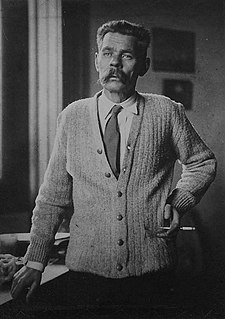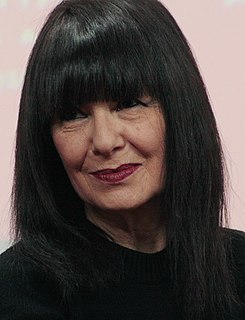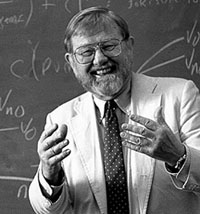A Quote by Michael Crichton
Without question, the notion of the doctor as a legitimate fee-for-service entrepreneur, making his fortune from misfortunes of his patients, is old-fashioned, distasteful, and doomed.
Related Quotes
A physician should take his fee without letting his left hand know what his right is doing; it should be taken without a thought, without a look, without a move of the facial muscles; the true physician should hardly be aware that the last friendly grasp of the hand has been made more precious by the touch of gold
Without a vision there is no possibility of creating something larger than what al-ready exists. An entrepreneur has to be able to bring something to the table through his or her vision that is not being provided by others - a special way of meeting needs, caring for others, treating patients, or marketing. An entrepreneur must have enormous faith. Risk-taking is critical to the development of an enterprise. You will not take risks unless you have the faith to do so.
He was a foe without hate; a friend without treachery; a soldier without cruelty; a victor without oppression, and a victim without murmuring. He was a public officer without vices; a private citizen without wrong; a neighbor without reproach; a Christian without hypocrisy, and a man without guile. He was a Caesar, without his ambition; Frederick, without his tyranny; Napoleon, without his selfishness, and Washington, without his reward.
Nothing is so insufferable to man as to be completely at rest, without passions, without business, without diversion, without study. He then feels his nothingness, his forlornness, his insufficiency, his dependence, his weakness, his emptiness. There will immediately arise from the depth of his heart weariness, gloom, sadness, fretfulness, vexation, despair.
Wicksell's old-fashioned liberalism is reminiscent of John Maynard Keynes' attitude toward conscription during World War I. Keynes opposed conscription, but he was not a pacifist. He opposed conscription because it deprived the citizen of the right to decide for himself whether or not to join in the fight. Keynes was exempt as a civil servant from conscription; so there is no need to question his sincerity. Apparently his belief in the rights of the individual against a majority of his compatriots was very strong indeed.
A genius is the man in whom you are least likely to find the power of attending to anything insipid or distasteful in itself. He breaks his engagements, leaves his letters unanswered, neglects his family duties incorrigibly, because he is powerless to turn his attention down and back from those more interesting trains of imagery with which his genius constantly occupies his mind.



































